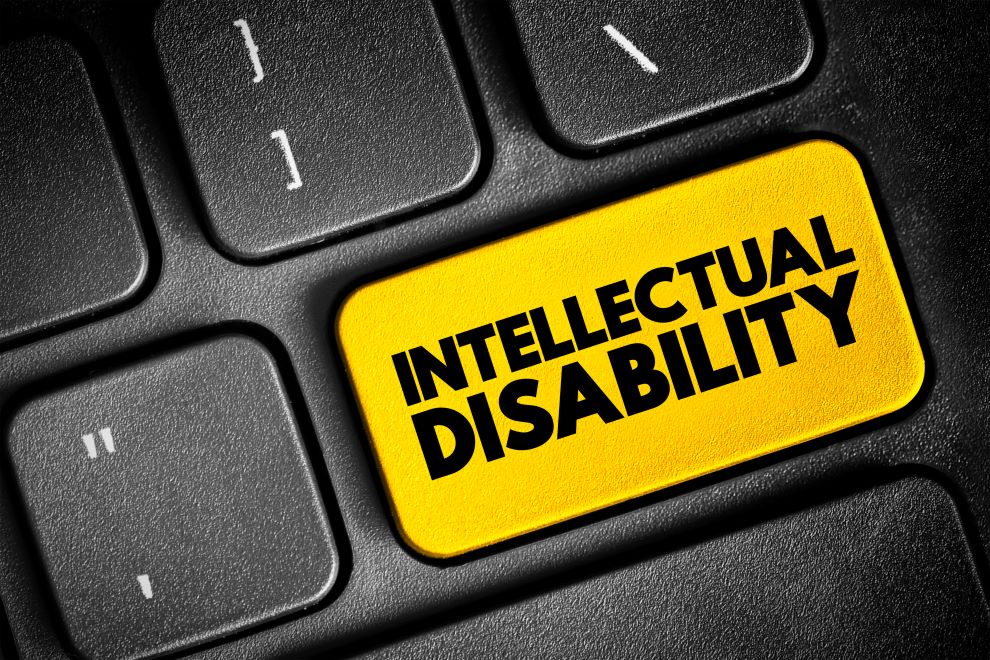
What is an Intellectual Disability?
An intellectual disability affects how a person thinks, learns and processes information.
It is a permanent and life-long disability that results in difficulties across a range of areas related to understanding, communicating, socialising and emotions.
In Australia, there are about 450,000 people with an intellectual disability.
Can you receive NDIS funding for an Intellectual Disability?
If you have been diagnosed with an intellectual disability, you may be able to access NDIS funding if you meet the eligibility criteria.
Funding can be used to support your needs directly related to your intellectual disability.
Intellectual Disability and NDIS Statistics
The following information has been collected by the NDIS and is up to date as of June 2023:
15% of the 610,502 active participants in the NDIS have a primary disability of an intellectual disability, making it the second most common disability for NDIS participants.
47% of participants with an intellectual disability are aged under 25 years.
57% of participants with an intellectual disability are male.

In the year ending June 2023:
89% of access decisions for applicants with an intellectual disability aged 18 years and under resulted in the applicant joining the Scheme, compared to 77% for those aged over 18 years.
$98,100 was the average payment for a participant with an intellectual disability, an increase of 13% compared to the previous year
The number of participants with an intellectual disability has increased by 6% and 5% in the last two years.

These trends show that funded support for people with intellectual disabilities is increasing.
Childhood supports for Intellectual Disability is funded by the NDIS
Early Childhood Supports (EC) are available to children younger than 6 with developmental delays or children younger than 9 with disability.
Children younger than 6 do not need a diagnosis to get support through the NDIS early childhood approach where there are concerns about their development.
The support provided involves funding for capacity building supports in early childhood, including a key worker. Learn about the keyworker model in the NDIS here.
Funded supports are available for a child with developmental delay or disability and their family or carers across the following settings:
- Home
- Community
- Early childhood education settings
The goal for early childhood support services is to work towards increased functional independence and social participation.
This approach aligns with research that finds early intervention can improve outcomes for children and families by targeting the circumstances that make supporting children's development difficult.
Therapy Supports (9 or older) for Intellectual Disability funded by the NDIS
Therapy supports are available for participants aged 9 and over with an established and diagnosed disability.
The goal of therapy is to facilitate functional improvement where there is no more scope from a medical perspective to improve health and function.
Therapy or capacity building can seek to address your goals and build your independence across areas of your life that are meaningful to you.
What therapy services can I access using my NDIS funding?
The following therapists and supports relevant to your intellectual disability which you may be able to access using your NDIS funding:
- Art Therapist
- Counsellor
- Developmental Educator
- Dietitian
- Exercise Physiologist
- Music Therapist
- Occupational Therapist
- Physiotherapist
- Podiatrist
- Psychologist
- Rehabilitation Counsellor
- Social Worker
- Speech Pathologist
There are also other professionals, described by the NDIA as a person who are not one of the types of professionals listed above but who the provider considers to be an appropriate professional to deliver therapeutic supports in line with the NDIS Quality and Safeguarding Commission’s requirements for the Therapeutic Supports Registration Group.
What other services can I access with NDIS funding?
NDIS funding is also available for other services outside of therapy. This includes day to day support provided by a support worker or support service.
If the support needs is related to your disability, you can access funding for a support worker to assist with:
- Self-care routines
- Cooking
- Cleaning
- Shopping
- Transport
- Programs and activities
These are just some examples of supports and services you can access using your NDIS funding related to your disability.
Our MyCareSpace Connections Team can help you navigate the NDIS and connect you with the services you need.
NDIS THERAPY FINDER - FREE SERVICE
LET US FIND YOU A SKILLED SUPPORT WORKER

